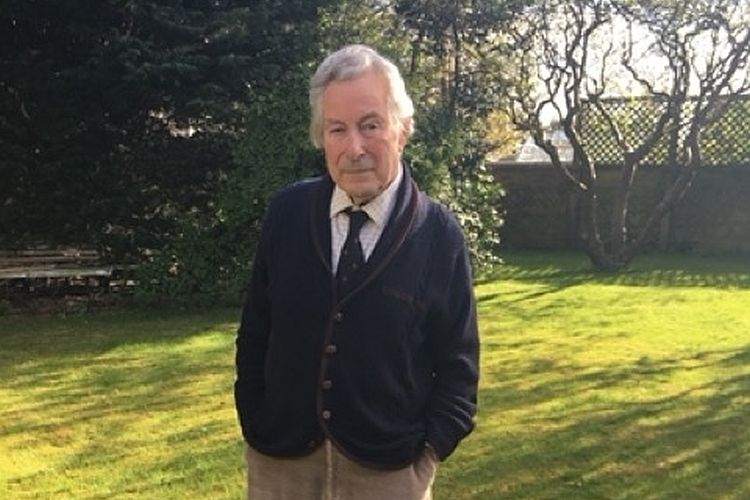Honorary Professor Tom Duncan
A service of thanksgiving for our former colleague Tom Duncan takes place on Saturday 4 November at 2pm in Holy Trinity Church, South Street to which all are welcome.
A book of recollections of and tributes to Tom is being put together by the School. Tom made a unique and unparalleled contribution to the School of the English and the University over 50 years; his accomplishments as a scholar of medieval literature, his generous hospitality and kindness to students and colleagues, and his panache as a teacher are remembered with great affection. We hope the book will provide an opportunity to celebrate Tom’s many achievements and contributions. Please send text by 5pm on Friday 3 November to ess2@st-andrews.ac.uk, for printing and inclusion in the book of remembrance.
Tom Duncan was a much-respected and popular former Head of the Medieval Section of the School of English, who served the University for over 50 years. Tom died on 17 August in his beloved home in St Andrews. He was 86.

Tom came to St Andrews in 1962, after degrees at Glasgow and Oxford, and a year teaching at the University of Manchester.
He was both a legend and a landmark in St Andrews, lecturing in English for 40 years, and continuing to teach as an Honorary Professor long after formal retirement in 2003. Additionally, he made a lasting contribution to the town’s musical life through his founding and leadership of choirs, his building of church organs, and his co-founding of the Friends of Holy Trinity Church and the establishment of choral scholarships there.
Tom was a passionate defender of the place of medieval literature in the curriculum and his second-year Arts lectures on Old English language were a tour de force, widely remembered and fully attended (he filled School III throughout the term). At Honours he emphasised the European context of Middle English poetry, particularly Chaucer's debt to Boethian philosophy and to works such as Le Roman de la Rose; his tutorials were always hospitable gatherings, often with sherry, and usually over-ran the set hour.
Tom's scholarship spanned very different genres. His long-term project was a scholarly edition of the Middle English Mirror, a massive cycle of 14th century English prose sermons. His editions of medieval lyric poetry have become standard reference works for students and scholars. Tom brought his love and knowledge of music to his research on lyrics; to demonstrate the importance of metre for editorial decision-making, he sang Miri it is while sumer i-last during a conference presentation in 1991, long remembered in the discipline. His work on medieval literature gained international recognition, prompting many invitations, most recently to give the Tucker Cruse Lecture in Bristol. Most of his distinguished publications appeared after he retired, the latest volume of the Sermons in 2021.
Tom was a natural performer and at home in front of an audience, in both lecture room and concert hall. His conducting of the St Andrews Chorus's The Messiah to a packed Younger Hall was an annual tradition marking the beginning of Advent in St Andrews during the 1980s and 90s. As organist at Holy Trinity Church, he provided music in St Andrews on a weekly basis, and for countless marriages and funerals for over 50 years. He travelled widely, giving organ recitals across Europe and the US, and accompanying the Renaissance Group on their international tours.
Tom made no secret of his preference for more traditional forms of university teaching; he firmly believed that academics should be left entirely free from administrative demands to pursue research over the undergraduate summer vacation; he had absolutely no time for a world in which students were regarded as ‘customers’. But he had endless time for students themselves. His large house in Donaldson Gardens was a haven, particularly for overseas undergraduates. For many years, Tom and Karla provided warm and generous hospitality for students, colleagues, visiting scholars and the many former tutees with whom he stayed in touch and who often returned to St Andrews to visit him.
He is survived by his companion, Professor Karla Pollmann, President at the University of Tübingen, his two daughters, Julie and Hazel, and five grandchildren.